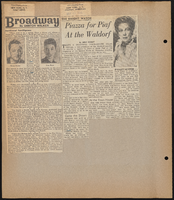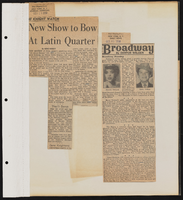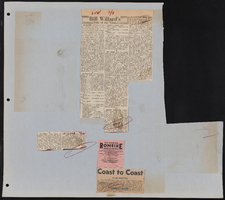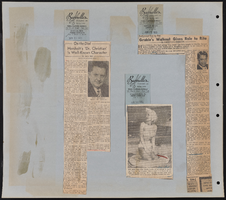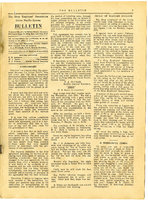Search the Special Collections and Archives Portal
Search Results

Nick Robone oral history interview: transcript
Date
Archival Collection
Description
Oral history interview with Nick Robone conducted by Claytee D. White and Barbara Tabach on December 21, 2017 for the Remembering 1 October Oral History Project. In this interview, Nick Robone, born and raised in Nevada, details his process of healing after being shot during the 2017 Las Vegas mass shooting at the Route 91 Harvest music festival. He discusses the events of that Sunday night and how he has learned to view life in a more positive light. Robone mentions various coping mechanisms that have helped him, including being open about his experience and talking about it with other survivors as well as pursuing his passions.
Text
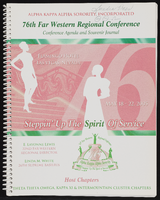
Alpha Kappa Alpha Sorority 76th Far West Regional conference program (MGM Grand Hotel)
Date
Archival Collection
Description
From the Alpha Kappa Alpha Sorority, Incorporated, Theta Theta Omega Chapter Records (MS-01014) -- Ivy Leaf magazines and event souvenir programs file.
Text
Jack K. Leavitt Collection on Las Vegas Land and Real Estate
Identifier
Abstract
The Jack Leavitt Collection on Las Vegas Lands and Real Estate (1968-1981) contains real estate property indexes for Clark County, Nevada, as well as an aerial survey of the city of Las Vegas, Nevada. The thirty-one indexes include alphabetical lists of home owners, their addresses, and maps of urban and private land parcels focusing on the cities of Las Vegas and Henderson, Nevada.
Archival Collection
Washington University, School of Fine Arts Collection of Student Calendars
Identifier
Abstract
The Washington University, School of Fine Arts Collection of Calendars consists of thirty-three calendars created by students in the Washington University, School of Fine Arts created in 1983.
Archival Collection

